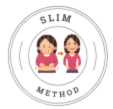In today’s health-conscious world, the term “gut health” is everywhere. But what does it truly mean, and how can we support this vital internal ecosystem? The answer often lies in understanding the symbiotic relationship between prebiotics and probiotics.
What are Prebiotics and Probiotics?
Think of your gut as a bustling garden. Probiotics are the beneficial “good” bacteria and yeasts that live in this garden. They are living microorganisms that, when consumed in adequate amounts, can offer numerous health benefits to their host. You can find them naturally in fermented foods like yogurt, kefir, sauerkraut, and kimchi, or in dietary supplements.
Prebiotics, on the other hand, are like the specialized “fertilizer” for these good bacteria. They are non-digestible fibers or compounds that selectively feed and stimulate the growth and activity of beneficial microorganisms already residing in your gut. Common food sources include garlic, onions, chicory root, bananas, and oats.
When prebiotics and probiotics are combined, either naturally in food or in supplements, they are often referred to as synbiotics, aiming for a synergistic effect that enhances the survival and activity of the beneficial bacteria.
The Far-Reaching Benefits of a Healthy Gut
A balanced and diverse gut microbiome is crucial for more than just digestion. Research continues to uncover the profound impact of gut health on various aspects of our well-being:
- Improved Digestion and Regularity: Probiotics introduce beneficial bacteria, while prebiotics nourish them, leading to a more efficient digestive process, reduced bloating, and promoting regular bowel movements.
- Boosted Immune System: A significant portion of your immune system resides in your gut. A healthy microbiome helps maintain a strong gut barrier, which acts as a defense against harmful pathogens and supports overall immune function.
- Enhanced Nutrient Absorption: A well-functioning gut can better absorb essential vitamins, minerals, and other nutrients from the food you eat, ensuring your body gets the fuel it needs.
- Skin Health Connection: Emerging research suggests a strong “gut-skin axis.” An imbalanced gut can contribute to inflammatory skin conditions, while a healthy gut may lead to clearer, healthier-looking skin.
- Mood and Cognitive Support: The gut-brain axis is a two-way communication system. A healthy gut microbiome can influence neurotransmitter production and reduce inflammation, potentially impacting mood, stress levels, and cognitive function.
- Weight Management and Metabolic Health: Prebiotics, particularly, can contribute to feelings of fullness, regulate appetite hormones, and influence gut bacteria in ways that may support healthy weight management and blood sugar regulation.
Choosing the Right Support: What to Look For
With a growing number of gut health products available, how do you choose? Here are some factors to consider:
- Diversity of Strains: Look for products that offer multiple beneficial probiotic strains, as different strains can provide different benefits.
- Inclusion of Prebiotics: A synbiotic approach (combining prebiotics with probiotics) can enhance the effectiveness of the probiotics by providing them with their preferred food source.
- Natural Ingredients: Prioritize supplements that use natural ingredients and avoid artificial fillers, colors, or excessive sugars.
- Transparency and Quality: Reputable brands often provide transparency regarding their ingredients, manufacturing processes, and may offer third-party testing for purity and potency.
- Targeted Benefits: Consider what specific benefits you are seeking. Some formulas might be geared more towards digestion, while others may emphasize immune support or the gut-skin connection.
Products like Primebiome and ProDentim, for instance, are designed to address both gut and skin health by combining specific probiotic strains (like Bacillus coagulans, Lactobacillus, and Bifidobacterium) with prebiotics (such as inulin and chicory root fiber) and other botanical ingredients like dandelion, fennel, and Lion’s Mane mushroom, which are associated with various health benefits. Such comprehensive formulas aim to provide multi-faceted support for overall well-being.
Beyond Supplements: A Holistic Approach
While supplements can be a valuable addition, they work best as part of a holistic approach to health. Incorporating a diet rich in whole foods, fruits, vegetables, and fermented foods, staying hydrated, managing stress, and getting regular physical activity all contribute significantly to maintaining a thriving gut microbiome.
Consult a Professional
Before introducing any new supplement into your routine, especially if you have existing health conditions or are taking medication, it is always recommended to consult with a healthcare professional. They can provide personalized advice and help you determine the best approach for your individual needs.
